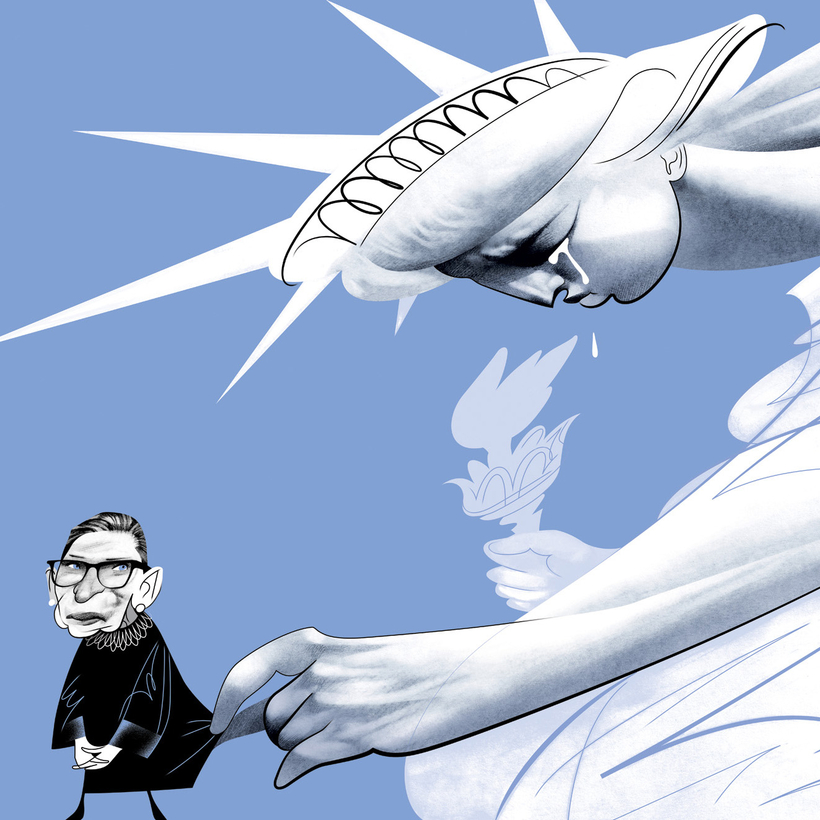Where to start on the passing of Justice Ruth Bader Ginsburg—the greatest American lawyer and judge since Thurgood Marshall?
One place might be her dissent in the case of Lilly Ledbetter v. Goodyear Tire & Rubber Co.
In May 2007, a 5–4 majority of the U.S. Supreme Court decided that Ledbetter, a retired Goodyear employee, should go home from the federal courthouse empty-handed. Though a jury had found that, yes, Ledbetter had been repeatedly and illegally denied pay raises throughout her career because of her sex, and that the cumulative effect of these wrongs was financially enormous, the federal anti-discrimination law required an employee to contest discriminatory acts within 180 days. She had not done so, so she was out of luck, the majority found.
In Ginsburg’s dissent, she explained why pay disparities were different from other wrongs that people endured in the workplace—such as being fired or not being hired at all. Characteristically, she used short sentences. No jargon. Certainly nothing ad hominem. No overt emotionalism. She just reminded everyone of how the real world works. She dissected casuistry and exposed callousness. Her understated words were chastening—even shaming.
In Ginsburg’s dissent, she explained why pay disparities were different from other wrongs.
“Pay disparities often occur,” she wrote, “in small increments; cause to suspect that discrimination is at work develops only over time. Comparative pay information, moreover, is often hidden from the employee’s view. Employers may keep under wraps the pay differentials maintained among supervisors, no less the reasons for those differentials. Small initial discrepancies may not be seen as meet for a federal case, particularly when the employee, trying to succeed in a nontraditional environment, is averse to making waves.... It is only when the disparity becomes apparent and sizable … that an employee … is likely to comprehend her plight and, therefore, to complain. Her initial readiness to give her employer the benefit of the doubt should not preclude her from later challenging the then current and continuing payment of a wage depressed on account of her sex.”
The unanswerable power of her argument led Congress to amend Title VII of the Civil Rights Act, in January 2009, to avert such injustices in the future. Historians will justly remember Ginsburg for her towering and pioneering role in fighting discrimination on the basis of sex, both personally, in her own life story, and jurisprudentially, throughout her career.
Yet, subjectively, what some of us will remember most were Ginsburg’s radiographic powers of legal analysis, her backbone, and her unerring moral gyroscope. While most of us become so emotional in the face of injustice that we cannot patiently pick apart exactly what’s wrong with the blizzard of sophistries being thrown at us, she could—and could do it on the fly, while maintaining her composure. She unraveled bad arguments in seconds, the way savants solve Rubik’s Cubes. She exposed injustice with hard-edged logic and plainspoken truth, and shamed the bullies into skulking away.
She was our champion.
Roger Parloff is a writer based in New York City


